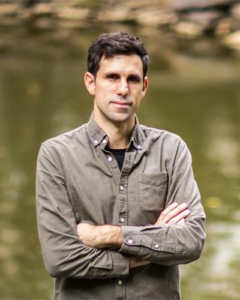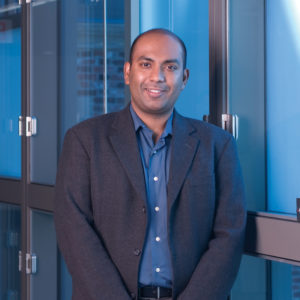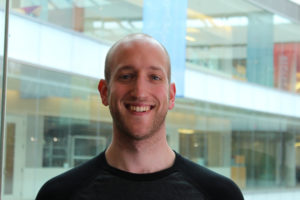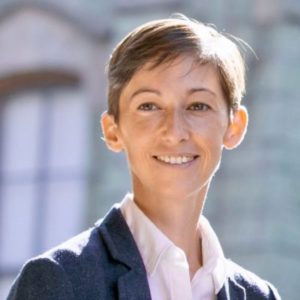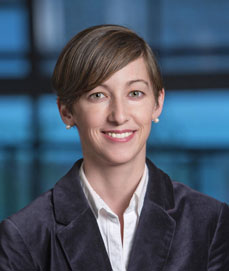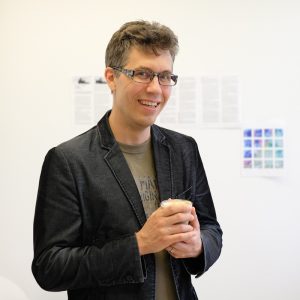Each year, the the Department of Bioengineering seeks exceptional candidates to conduct summer research in bioengineering with the support of scholarships. This summer students participated in the Abraham Noordergraaf Student Summer Bioengineering Research Fellowship, the Blair Undergraduate Research Fellowship in the Department of Bioengineering, and the IGEM Fellowship. These scholarships provide a living stipend for students to conduct research on campus in a Penn research lab under the mentorship of a faculty member.
Meet Our Summer Fellows
Abraham Noordergraaf Research Fellow
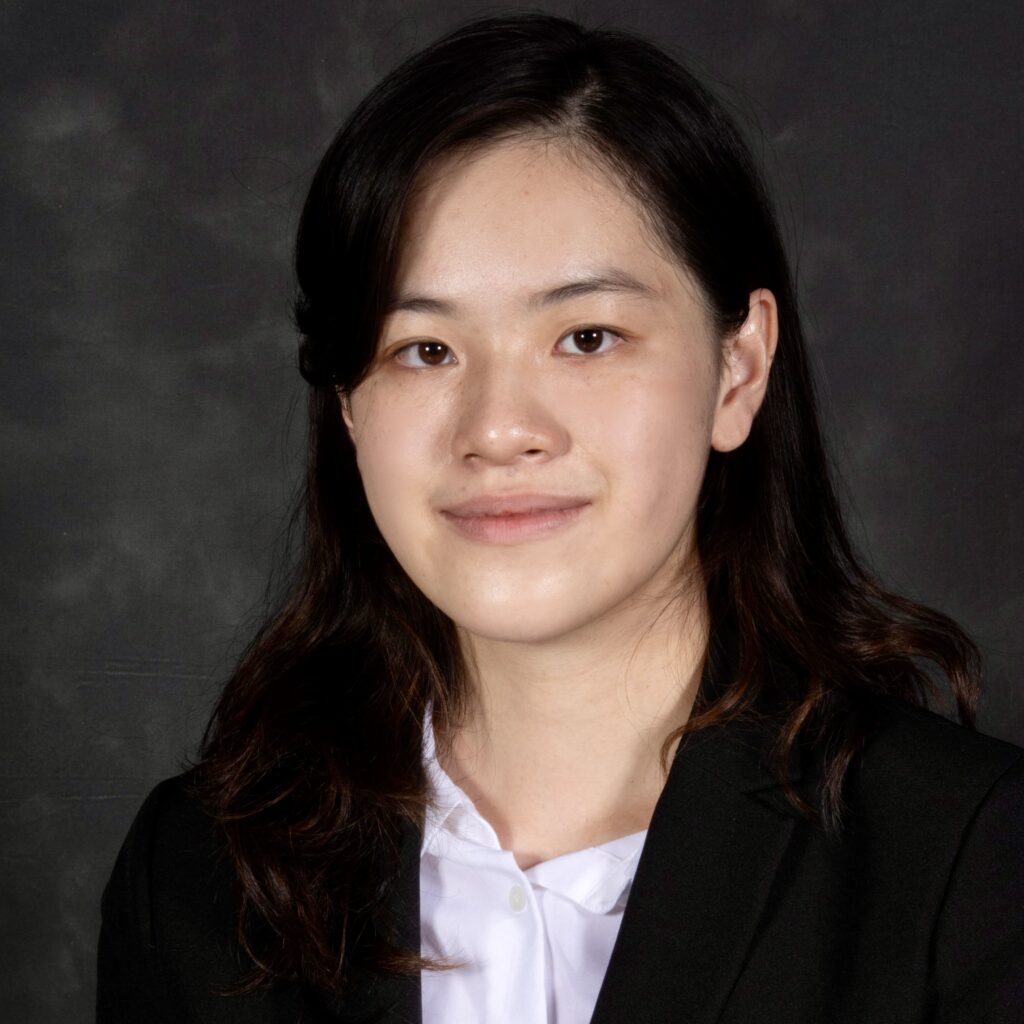
Name: Patricia Chen
Current Year and Major Program: Second year master’s student in Bioengineering
Faculty Mentor: Dr. Kevin Johnson
Project Title: PCP-Bot: Leveraging Large Language Models for Multilingual AI-Assisted Pre-Visit Planning in Primary Care
Abstract: With the rise of electronic health records (EHRs), physicians now devote a substantial portion of patient encounters to clinical documentation, reducing the time available for direct patient interaction. Pre-visit planning is an important strategy for reviewing essential information in advance to improve efficiency, outcomes, and satisfaction. Increasingly, AI-powered chatbots are being deployed in healthcare settings. These systems offer a promising way to streamline this process. However, despite its growing adoption, chatbot performance disparities persist between English and non-English users. Recent cross-lingual LLM evaluations highlight up to an 18% drop in response correctness and a 29% decline in consistency for non-English queries, raising equity and safety concerns. To address these disparities, we developed PCP-Bot, an AI-powered chatbot for pre-visit planning that gathers patient history and concerns before the clinical encounter, then creates a concise, 300-word summary for clinical use. We evaluated its performance across English and non-English interactions using standardized simulated patient scenarios, assessing correctness, consistency, and completeness. Results will guide improvements in multilingual functionality of PCP-Bot to enhance equity, safety, and effectiveness in diverse patient populations.
Blair Undergraduate Research Fellowship in the Department of Bioengineering
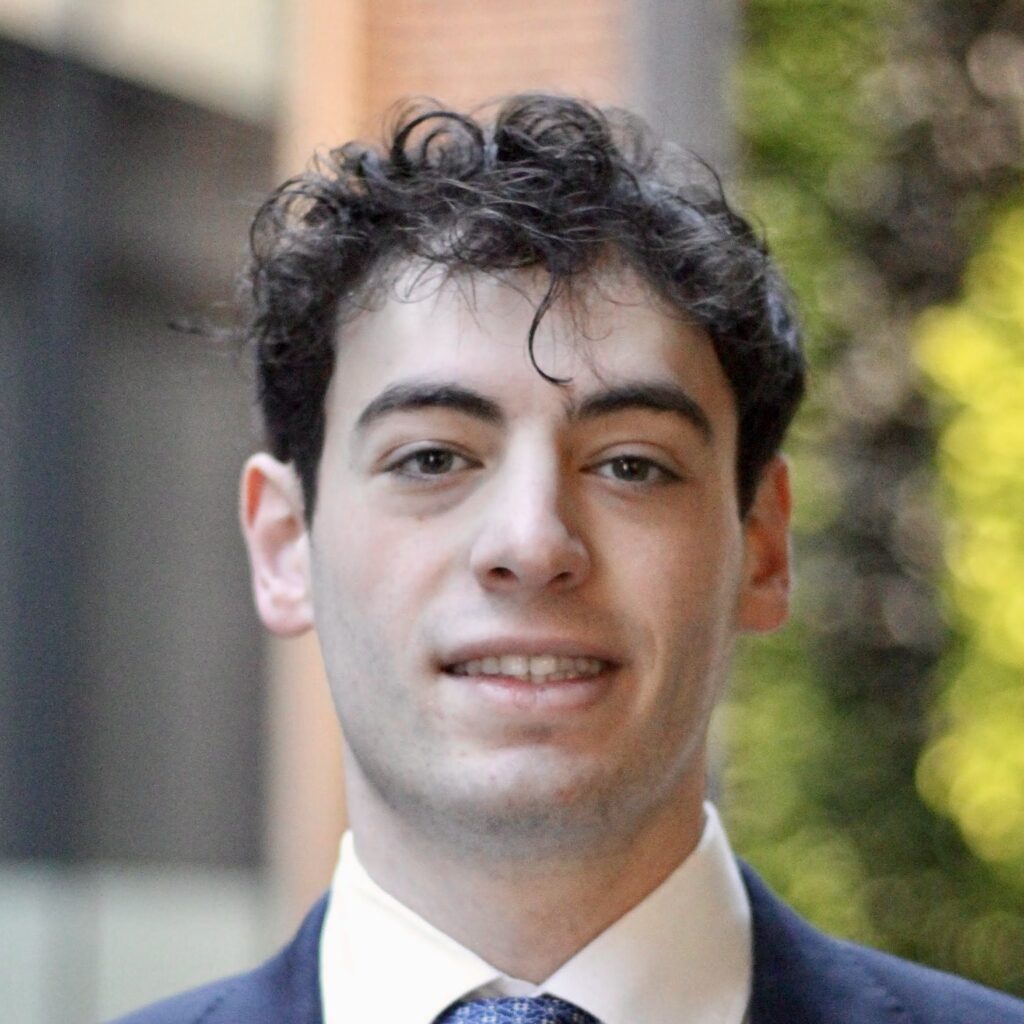
Name: Alex Schnurman
Current Year and Major Program: Class of 2028, Biochemistry
Faculty Mentor: Dr. Noor Momin
Project Title: Using APEX2-based proximity labeling to identify lysosome-associated proteins
Abstract: Hypertrophic cardiomyopathy is an inherited heart disease that affects 1 in 500 people a year. RNA interference therapies, such as small interfering RNA (siRNA), could address causal gene expression, but effective delivery to cardiomyocytes remains a substantial barrier for siRNA delivery. We aim to nominate cell-surface entry points for delivering siRNA therapies to the lysosomal compartment of cardiomyocytes to maximize siRNA escape from the endolysosomal compartment. As a first step, we are developing a proximity labeling-based platform to identify lysosome-associated proteins as the first step towards nominating ideal targets for siRNA therapy. We expressed a proximity labeling enzyme tethered to the lysosomal protein to biotinylate lysosome-specific proteins. Flow cytometry demonstrated successful expression of the enzyme construct and microscopy verified expression of the construct in puncta, suggesting localization to endolysosomal compartments. We then optimized procedures to initiate proximity labeling to biotinylate nearby proteins and microscopy showed biotinylation of proteins in puncta. These results are the first step towards a lysosome-specific module that can pair with complementary techniques to identify cardiomyocyte-specific target proteins for siRNA delivery.
IGEM Fellow
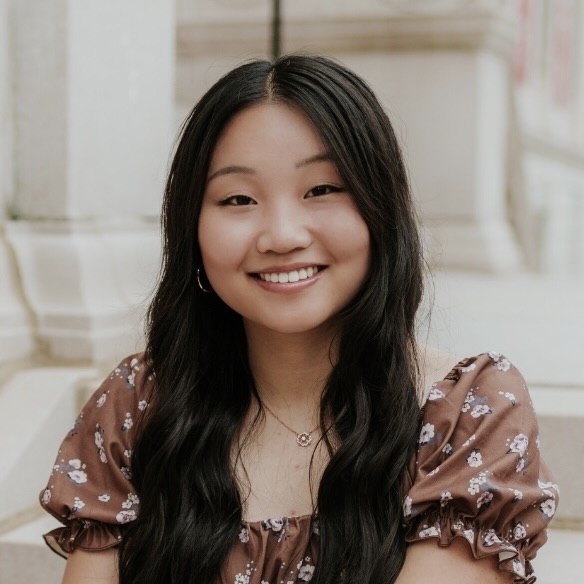
Name: Yifan Zhai
Current Year and Major Program: Class of 2028, Bioengineering
Faculty Mentor: Dr. Lukasz Bugaj
Project Title: Screening Synthetic Binders for EML4-ALK
Abstract: Our overall goal is to develop synthetic protein circuits that sense a cell’s oncogenic state and eliminate the cell in response. There is currently an urgent need for therapies that can: (1) sensitively distinguish cancer cells from healthy cells, (2) directly initiate cancer cell death, and (3) efficiently clear the tumor. Our approach works by first recognizing specific oncogenic proteins and subsequently executing a desired pathway of programmed cell death in response. To realize this vision, our goal for the summer was to engineer and identify protein binders that specifically localized to these target oncogenes, a critical missing link that would allow our engineered therapies to respond to the appropriate molecules. We designed and assembled multiple test constructs, introduced them into cells expressing fluorescently labeled targets, and then assessed their function using live-cell imaging and biochemical assays to evaluate binding efficiency. Through this project, I developed skills in molecular cloning, mammalian cell culture, live-cell imaging, and image analysis.

